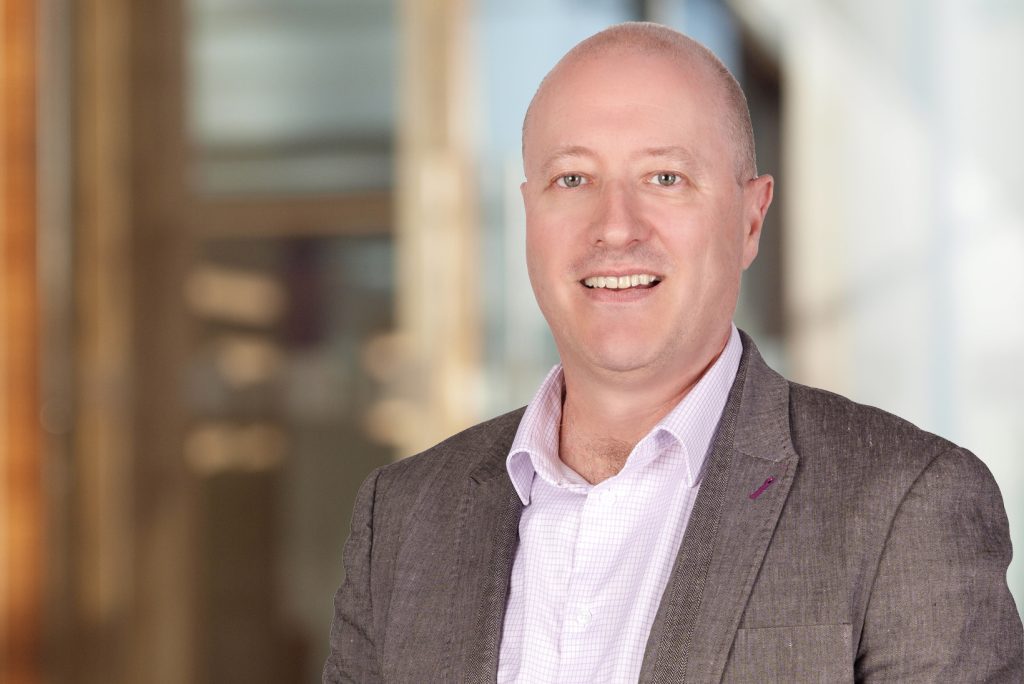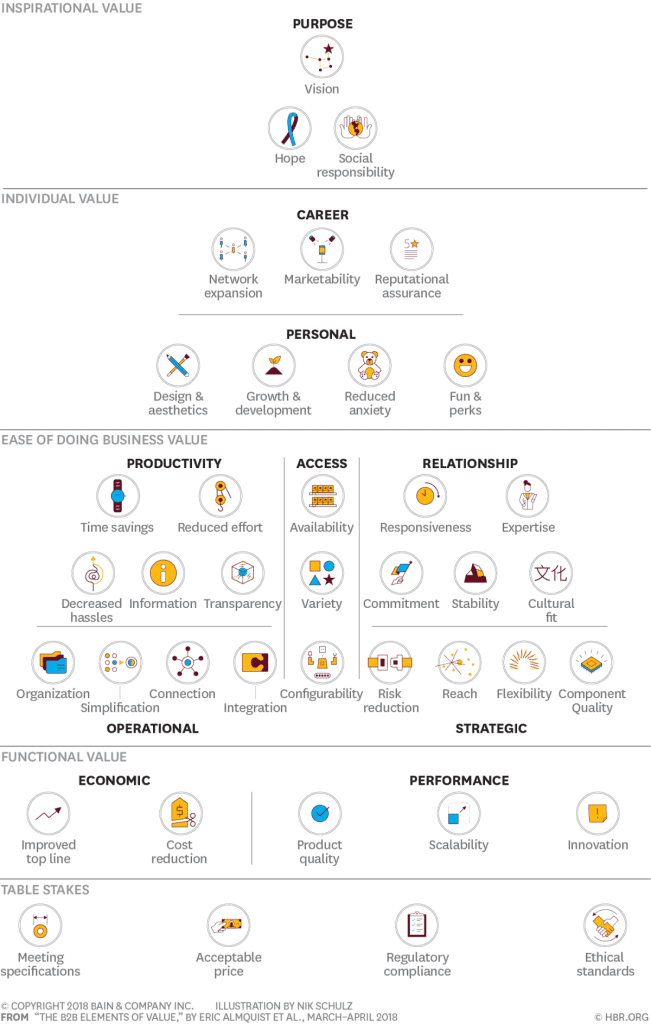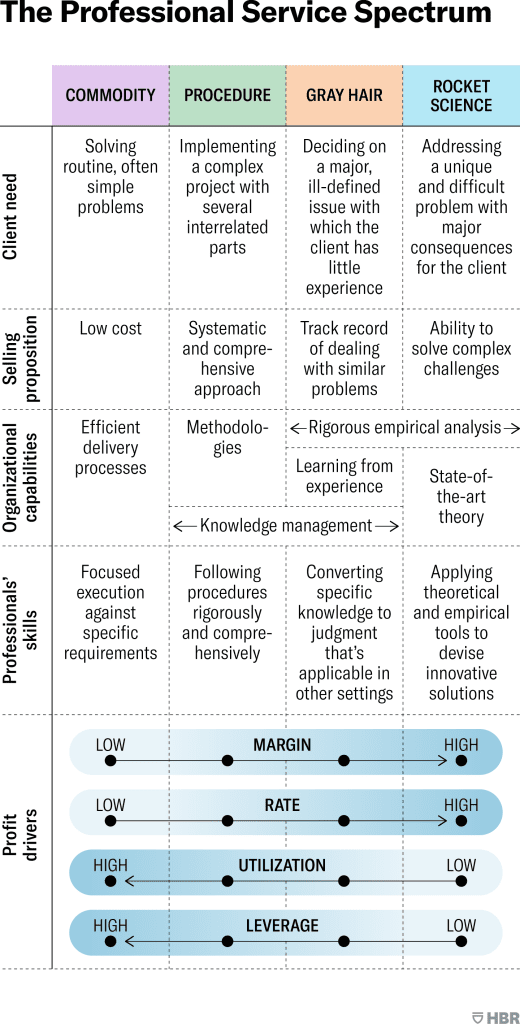May 1, 2024
Value – like beauty – is often in the eye of the beholder.
On the one hand, the subjective theory of value has been argued by economists for more than 100 years. The value of an object or offering is not necessarily fixed by the amount of resources and the hours of labour that went into creating it – it’s variable according to context and user perspective.
In the modern era however, a more nuanced view has since emerged outlining how businesses perceive value in the form of a pyramid. Objective at the bottom and subjective at the top.
Whether in the subjective camp of ‘one man’s trash is another man’s treasure’ or objectively resolute in the belief that this is a binary decision – the industry can unite on one prevailing theory… market money always flows in the direction of value.
“It’s a little up for grabs,” assessed Anthony Woodward, CEO of Logicalis Australia. “But what is now considered as table stakes is moving fast.”

Woodward is weighing up managed services amid the backdrop of hesitant IT investment and cautious buying cycles in Australia. This is a market still punch-drunk from the pandemic.
“What’s showing up is a focus on the investment and one of the most powerful terms articulating that is ‘time to value’ which we encounter regularly,” Woodward explained.
“If a business is going to invest in something, how quickly can that be turned into either a productivity gain or a saving somewhere else? That’s definitely a different conversation compared to a few years ago.”
In that sense, investment in technology solutions and services continues to trend upwards – albeit at single digit growth in the local market – but the demonstration of value has changed.
“Correct,” Woodward added. “This means longer approval cycles and more governance steps involved to get projects going. That’s all wrapped up within the framework of ‘well, there isn’t any new money’ so if a business wants to invest, how can they be more effective with spend? Perhaps on the operational side.”
Directly translated, Woodward – who joined the company as CEO of Australia in July 2021 – rephrased to ‘do more with less’.
“That rubric is naturally emerging,” he said. “Closely examining internal capabilities and teams and potentially outsourcing some elements of the run operations to refocus efforts on digital transformation work.”
Despite such industry investment paralysis, outliers do exist. Notably in the form of cyber security which continues to accelerate from a spending standpoint.
“But it’s under the microscope of, ‘where are we spending?’ and understanding the risk mitigation impact,” Woodward qualified. “Customers have the problem of managing multiple tools and remain unsure whether that is providing the coverage required in terms of plugging the gaps.”
Alternatively, solution overlaps also exist and technology is doubling up in areas. Or product A doesn’t talk to product B and an integrated view is lacking due to a tendency to solve point problems with point solutions.
“The intention is to continue spending on cyber security because for many organisations, this is still a catch-up play,” Woodward observed. “The investment may have been lacking in years gone by but the risk profile has now grown to a point in which this has become a directive – close the gaps.”
In response to a topsy-turvy market, Woodward said capturing the pragmatism of what customers are trying to embrace is critical.
“Look across the landscape and examine where the IT spend is going and what the return on value is,” he noted. “That’s when you uncover more efficient ways of delivery and components of capability that could be outsourced.”
Conversations are continuous specific to helping businesses maximise IT investment on the run side – this isn’t always about making a saving however and can instead focus on freeing up firepower to drive transformation efforts. But whatever the conversation, Logicalis is looking beyond that.
Climbing the value pyramid
Australia has been shaped by traditional managed service provider (MSP) metrics for many years, underpinned by an age-old model based on conventional criteria. In that sense, rebranding away from delivering ‘lights on’ services represents a challenging undertaking.
“If we’re not involved in the conversation at the business imperative level then it becomes difficult to discuss those outcomes later in the game,” Woodward explained. “By that stage, a tender package has been pieced together that states, ‘deliver this, by this much, by this date’. End of discussion.”
Whereas, if Logicalis can influence at the point that business outcomes are being sought, the material impact to the customer will be significant. Climbing the value pyramid requires repositioning however.
“Going through that process affords the opportunity to address the table stakes but move beyond that into the business measurement areas,” Woodward added.
For example, if reducing a company’s carbon footprint is important, then Logicalis can track the impact of the investments made so far. Then examine the impact today and what moving to a different platform would look like in the future.
“Or, keeping up-to-date with the latest Microsoft security requirements in Azure,” Woodward continued. “Okay, let’s measure this on an ongoing basis rather than bringing in an independent tester later down the line.
“Whatever the focus, this approach has changed the dynamic of how we deliver a service.
“It becomes adaptable as opposed to locked down in the traditional MSP sense – ‘you’d like additions or changes? Well, that’s not in the original scope of work and requires another cycle of effort to make that happen’.”
Moving away from such rigid rules of MSP engagement is reflective of the dynamic IT environments that most organisations find themselves within.
But for the progress to be realised, end-user cooperation is key. Buyers must also break the chain of issuing traditional tenders incentivising traditional techniques.
“We do see this happening,” Woodward highlighted. “We’re responsive to what customers are asking for, which is a shift from IT as a ‘have to have’ to more of a transformative enabler. Actually something that they can accelerate innovation on the back of.”
Organisations aware of that realisation are responding with clear mandates for future MSP engagement – “keep up, be flexible and take care of our core”.
According to Moxie Research – which surveyed 251 IT decision-makers in Australia during February 2024 – the most important criteria when selecting technology outsourcing partners is:
“We’re starting to see this,” Woodward said. “Organisations want to be more dynamic and push the envelope, something they will probably struggle to achieve through a ‘traditional MSP’ – emphasis on the inverted commas here.”
Echoing Moxie Research, Woodward agreed that the number one buying question for customers in Australia is simple; ‘do you understand my business?’
“But you can only truly understand a customer’s business if you have deep specialisation by vertical,” he cautioned. “In health, a customer might be running hundreds of different applications which can’t migrate to the public cloud – so would a generic managed cloud service solve that problem? No.”
Logicalis has strength and heritage in the government sector, chiefly local and regional councils in both Victoria and New South Wales (NSW). This is in addition to public health and education verticals, as well as a commercial segment defined as organisations housing between 500 and 5000 seats.
“Where we’ve been successful in a vertical, we’ve doubled down and used the learnings to build further and become the best in that particular vertical,” Woodward added.
“We have the customers and the references so we know the problem space and pain points by sector and can then underpin that with a horizontally scalable managed service capability.”
According to Bain, 40 distinct elements of value exist in B2B offerings, scaling five levels of a pyramid. The most objective kinds of value are found at the base, and the higher a level is, the more subjective and personal the types of value it contains.

“Elements at the base of the pyramid have long been easy to measure, and competing on them has been straightforward,” noted Eric Almquist, Jamie Cleghorn and Lori Sherer, in a Harvard Business Review (HBR) article documenting the theory.
“The more emotional elements at the middle and upper levels have traditionally been difficult to isolate and quantify and, therefore, harder to implement. But the battle for differentiation is shifting toward these less transactional aspects.”
Taking table stakes off the table
For any established MSP in Australia, fighting a battle for differentiation is commonplace. The market is crammed with providers of state, national, regional and global persuasion – each seeking a future beyond commoditisation and into the holy grail of true value-add.
In the context of Logicalis, unique intellectual property (IP) comes in the form of a Digital Fabric Platform, labelled as next-generation managed services spanning the key metrics of:
“If you’re a CIO, how do you demonstrate the value of an MSP to the rest of the business?” Woodward questioned. “We had to create metrics that actually meant something to business stakeholders as opposed to just SLAs [service-level agreements].
“How do you measure that you’re getting what you need? It’s about aligning those outcomes to business imperatives.”
Such customer outcomes include high levels of availability, security and compliance – now considered “non-negotiable” and areas that “simply have to be addressed”.
“We’ve scaled our managed services across cloud, network and security,” Woodward added. “If a customer built those capabilities internally, it would be more expensive and less efficient.”
The platform was built to take managed services out of the realm of cost – aka the cheapest mode of delivery – and into the business benefits of outsourcing key components.
In addition, this powers global lifestyle services across a three-stage process consisting of:
“Think of it as design, build and run or align, transform and scale,” Woodward shared.
“But why is this important? Because one of the other approaches to managed services in the market is to simply wheel an army of people in to manage an existing technology footprint. The usual day rate on a bodies basis engagement.”
The downside of that approach – explained Woodward – is the absence of a transformation agenda.
“It’s designed to just keep running in the most cost effective way,” he questioned. “Let’s hit those SLAs but forget about moving the game forward.”
In response, Logicalis is assuming the opposite position in market.
“When operationalising an IT platform, make it efficient, sustainable and secure,” Woodward added. “Build these capabilities as environments evolve which allows for a different conversation, beyond the usual cheap rates and SLAs.”
Built for a global organisation, the Digital Fabric Platform continues to be refined and developed via a centre of excellence model which is accessible for each region. The approach is simple in the manner of identifying the best services capabilities from across the world, before combining expertise to create a unified product that is redistributed back out to the local markets.
For example, Azure Managed Services (AMS) specialisation was created following the acquisition of Corporate Network Integration (CNI) in 2018, a leading Microsoft partner based in Melbourne.
“This is a powerful model because building expert capabilities in each region is slower and less efficient than consistently replicating best practice everywhere,” Woodward said. “Customers can also have a global or regional experience if required – all of which can be managed across the platform.”
Global product prowess is enhanced by local expertise across commercial and technical leadership functions, following an on-the-ground recruitment drive during the past 9-12 months.
From a personnel perspective, Logicalis recently appointed John Griffin as Chief Technology Officer (CTO), Baden Graco as Head of Transformation Services and Tim Davoren as Head of Cyber Security.
“We’ve also been building our sales team aligned to a national structure instead of state-based,” Woodward noted.

In combining both global and local capabilities – product and people – Woodward acknowledged an enhanced level of confidence when competing in projects, powered in part by a strong ecosystem of vendor alliances.
Notably, global partnerships with Microsoft and Cisco supported by local engagements with Dell Technologies and Red Hat among others.
“We have an advantage as an MSP in that we operate outside of the traditional managed services scope,” Woodward said.
“Our vendor partnerships allow us to act like a systems integrator for certain phases of the customer journey. If a customer has a problem, we can bring in additional expertise to solve that as well as running and managing IT environments.”
Playing both roles is key, according to Woodward.
“Any MSP that wants to differentiate will have to offer more than traditional managed services,” he stated.
“If you assume the technical capability is there for 99.99% of MSPs in Australia – to varying degrees of certifications and capabilities – service becomes the one key differentiator. That’s what customers keep coming back for and also how you win new customers.”
Whether entrepreneur or CEO, lead from the front
For almost 30 years, Woodward has built, scaled and run technology companies in the internet and cloud services space as both an entrepreneur and CEO.
Leveraging access technologies to create Zip World in 1995, Woodward created a market-leading retail and wholesale provider which was sold to Nasdaq-listed Pacific Internet – now part of Telstra – in 1999.
Woodward then founded Bulletproof, which evolved into an end-to-end cloud services provider in Australia and New Zealand. The company went public through a listing on the ASX in 2014 before its acquisition by AC3 for $24.7 million, following a market bidding war in 2018.
After forming and running Accelera Group – a small consulting practice focused on digital transformation – in 2019, Woodward then assumed the reins at Logicalis Australia.
“I’ve experienced this feeling a few times in my career,” he recalled. “When you come up with an idea, then start to execute and it becomes successful – don’t be afraid to really back yourself and lean into it further. That’s when the success will come.”
To some degree, that involves not being distracted by the next best thing. Shinier toys will always exist in the market, driven by commentary around what you should or should not be doing.
“That vigilant focus on one thing – or a group of things – that you know you can do well and execute is key,” Woodward shared. “Just focus on making that better and create a recipe for repeat success – don’t be distracted by going too broad.”
Often and mistakenly expressed as “do one thing”, Woodward clarified that flexibility is an important skill to cultivate in terms of executing on a core skill set – whether on an individual or group basis.
“At Logicalis, we have a very rich partner ecosystem should a customer require something out of our areas of expertise,” he added. “Partnering is our preferred approach rather than building something that isn’t core to our value.”
Referencing a sample set of one in terms of working for a global organisation – combined with two companies that were built and sold – Woodward thrives when building teams capable of driving innovation efforts.
“What’s been consistent across my career?” he asked. “People often mistake the CEO for having all the ideas but it’s the people. Success has been reliant on building a team with an innovation culture at the heart – including a safe space to not only come up with new ideas but most importantly, execute.
But is it easier to build a culture from scratch as an entrepreneur in a start-up or inherit a culture as local CEO of a global organisation?
“Both represent different sets of challenges and neither is easy,” Woodward clarified. “Building and holding an organisation to a culture takes a lot of vigilance and a lot of hard work.”
This is especially challenging amid accelerated growth. When skills are in short supply and projects are piling up, it can be easy to “look the other way” and neglect cultural fit during the recruitment process. Okay, let’s fill the role and get on with it.
“But you pay for it further down the road, that I do know,” Woodward cautioned.
“Stay vigilant because as it becomes known in the market what your culture is and the sort of people you want to attract, you actually end up with more candidates to choose from. It doesn’t become easy – rather easier – in terms of having that conversation with potential hires about whether they are a cultural fit or not.”
Inform your opinion with executive guidance, in-depth analysis and business commentary.